- Home
- Norman Mailer
The Gospel According to the Son
The Gospel According to the Son Read online
ALSO BY NORMAN MAILER
The Naked and the Dead
Barbary Shore
The Deer Park
Advertisements for Myself
Deaths for the Ladies (and Other Disasters)
The Presidential Papers
An American Dream
Cannibals and Christians
Why Are We in Vietnam?
The Deer Parkùa Play
The Armies of the Night
Miami and the Siege of Chicago
Of a Fire on the Moon
The Prisoner of Sex
Maidstone
Existential Errands
St. George and the Godfather
Marilyn
The Faith of Graffiti
The Fight
Genius and Lust
The Executioner's Song
Of Women and Their Elegance
Pieces and Pontifications
Ancient Evenings
Tough Guys Don't Dance
Harlot's Ghost
Oswald's Tale: An American Mystery
Portrait of Picasso as a Young Man
THE GOSPEL ACCORDING TO THE SON
NORMAN MAILER
RANDOM HOUSE NEW YORK
Copyright 1997 by Norman Mailer
All rights reserved under International and
Pan-American Copyright Conventions. Published in
the United States by Random House, Inc., New York,
and simultaneously in Canada by Random House
of Canada Limited, Toronto.
Library of Congress Cataloging-in-Publication Data
Mailer, Norman.
The Gospel according to the Son / Norman Mailer.
p. cm.
ISBN 0-679-45783-6
1. Jesus ChristFiction.
2. Bible. N.T.History of Biblical eventsFiction.
I. Tide.
PS3525.A4152G6 1997
813'.54ùdc21 96-48018
Random House website address: http://www.randomhouse.com/
To Susan, Danielle, Elizabeth, Kate, Michael, Stephen, Maggie, Matthew, and John Buffalo
1
In those days, I was the one who came down from Nazareth to be baptized by John in the River Jordan. And the Gospel of Mark would declare that on my immersion, the heavens opened and I saw "a spirit like a dove descending." A mighty voice said: "You are My beloved Son in whom I am well pleased." Then the Spirit drove me into the wilderness, and I was there for forty days and was tempted by Satan.
While I would not say that Mark's gospel is false, it has much exaggeration. And I would offer less for Matthew, and for Luke and John, who gave me words I never uttered and described me as gentle when I was pale with rage. Their words were written many years after I was gone and only repeat what old men told them. Very old men. Such tales are to be leaned upon no more than a bush that tears free from its roots and blows about in the wind.
So I will give my own account. For those who would ask how my words have come to this page, I would tell them to look upon it as a small miracle. (My gospel, after all, will speak of miracles.) Yet I would hope to remain closer to the truth. Mark, Matthew, Luke, and John were seeking to enlarge their fold. And the same is true of other gospels written by other men. Some of these scribes would speak only to Jews who were ready to follow me after my death, and some preached only to gentiles who hated Jews but had faith in me. Since each looked to give strength to his own church, how could he not fail to mix what was true into all that was not? But then from all these churches one prevailed, and it chose but four gospels, condemning the others for placing "immaculate and sacred words" next to "shameless lies."
It is also true that whether four gospels had been favored or forty, no number would suffice. For where the truth is with us in one place, it is buried in another. What is for me to tell remains neither a simple story nor without surprise, but it is true, at least to all that I recall.
2
For fourteen years I was an apprentice, as were ten others, to Joseph the carpenter, and our first work as novices was to split logs. With the head of an ax we would drive a wedge forward until it divided the trunk along its length. Then we would split the trunk again, and still again, until many rough planks were obtained. And it took a good apprentice to guide the wedge, after which our boards were shaped by much trimming.
Nor was it easy to find communion with the wood. None of us could forget that apples from the tree in Eden had possessed knowledge of good and evil; sometimes it would seem that good and evil were still in the wood. A fine piece worked upon for days might betray your tool at the smallest mistake, and often the board seemed to split by itself. I came to believe that even a crude plank could act with knowledge of good and evil (and much desire to do the latter). But then, an evil man cannot pass by a fine tree without saddening its leaves.
Still, there was wisdom to be found in doing good work. When the task went well, I was at peace. The scent of a well-made chest cheered me, and I could feel a fine spirit between the grain and my hand. I do not know how else to say it. In my family we did not speak of such matters. Being Essenes we were, of all Jews, strictest in our worship of the one God and were full of scorn for Roman religions with their belief in many deities. So I could hardly talk to my family of a spirit in the wood. That was pagan, and I had been raised to be as devout as the husband of my mother, Joseph the carpenter. He wore white robes when he was not working, and washed them frequently, even when our well was low. Every Essene was supposed to strive for such cleanliness.
Therefore, we seldom married, and a man only lay with his wife when God told him to make a child. Jews who were not Essenes spoke of us as a sect that would die out (and soon!) unless we could make converts.
It will be understood, then: I was taught not to pursue women or even to approach them. We were to live as warriors for the Lord. We were not to lie down with women when such acts could weaken our purpose. To live by this rule was law, even if the war would last for the length of one's life.
3
At the age of twenty-seven I finished my apprentice . ship and became a master, but still worked with Joseph. In my youth, other apprentices had been jealous of me because they looked upon him as my father, but I could have told them that Joseph served God by treating all of his workers with as much respect as he gave to his work. When I was scrupulous in my labors, Joseph would nod and say, "You would make a good carpenter if God had wanted you to be one." What did Joseph mean? As he said such things, he would turn his head away as though to press his lips upon a secret. Being old, his memory was weak, and he could not recall that he had told me this secret, the true story of my birth, when I was twelve. Yet I remembered even less, for he had related these events to me on our journey back to Nazareth from the Great Temple in Jerusalem, and what I learned was so far from the understanding of a boy that soon after our return, I fell into a long fever. All that Joseph told me seemed lost. Still, I do not think it was the fever that made me forget, but rather that I did not wish to remember. It was only after eighteen years had passed and I was thirty and mourning Joseph's death that I could recall what he told me when I was twelve.
In those years my family, together with other Essenes from Nazareth, rich and poor, would walk to Jerusalem in the week before Passover, all of us dressed in white, and we traveled in such numbers that we did not fear thieves on the road. The journey took three days from dawn to dark over the hills and valleys and deserts between Nazareth and Jerusalem, but after my twelfth year, however, they never went again.
For on that visit, even as they passed through the last gate of Jerusalem on their way home, I slipped out of the procession and ran all the way back to the Great Tem
ple. Because all the children from Nazareth had stayed together, my mother did not notice my absence until later that morning.
When they didn't find me among friends, kinfolk, or neighbors, Mary and Joseph hastened back to the Great Temple, and there they found me in one of the courtyards, with a number of priests and doctors. To the astonishment of my parents, I not only sat comfortably among these wise men but was speaking with them.
According to Joseph and Mary, my words were worthy of a prophet: a miracle.
Later, after the death of Joseph, I came to believe that I must preach and asked my mother what I had said on that day in the Temple eighteen years ago. But she would tell me no more than that my words were so holy she could not repeat them, no more than she could speak the name of the Lord aloud. Yet even as she refused, so did a better memory of that moment come back to me, and I, too, was delighted with my wisdom.
What, then, had I been saying? My spoken thoughts were not holy so much as difficult to comprehend. For in those years wise men in the synagogue often had learned discussions with each other about the Word. Had the Word always been with God?
Later, the Gospel of John commenced by saying: "In the beginning was the Word and the Word was God." But that was written many years after I was gone. When I was twelve, the question was still in dispute. Had God made our flesh to be like the flesh of animals, or had He created us by His utterance alone?
Now, I could recall telling these learned elders that the Word had lived first in water even as the breath that carries our speech comes forth from our mouths in a cloud on a cold winter morning. Yet clouds also bring rain, I had said, and so the Word lives in the water of our breath. Thereby we belong to God. For all the waters, we know, are His, even as all the rivers go down to the sea.
In that hour, the priests told my mother, "Never in one so young have we heard such wisdom," and I would suppose that this praise decided Joseph to tell me the story of my birth in the course of our return to Nazareth.
What I now relate is how the story came back to me in my thirtieth year while praying at Joseph's funeral. Indeed, even as I prayed, I could still see the strain on his face on the day he told me that he was not my father.
4
Before I was born, Joseph had been a widower. He was many years older than my mother, but asked her to consider marriage. Since he was an Essene, he declared that he would respect their difference in age: To protect her, he would serve first as her guardian and then they would be wed. She agreed. And Joseph waited.
There came a night, however, when the angel Gabriel entered her bedchamber. As Mary would tell it to Joseph, this angel said: "The Lord is with thee. Blessed art thou among women."
My mother, like Joseph, was an Essene, and so was her mother. Virtue had built a fence around the first fence in order to guard her. Nonetheless, the angel Gabriel was radiant, and the white of his garment was like the light of the moon. In that light she shivered yet felt much admired. She also felt weak. All that she knew had left her.
The angel said, "Mary, thou hast found favor with God. Thou shalt conceive in thy womb and bring forth a son. Call his name Jesus. He shall be great and he shall be called the Son of the Highest." These words are taken from the Gospel of Luke, but according to my mother, the angel said little. All the same, she had seen the glory of the Lord (if only for an instant), and knew by the heavenly turn in her breast that she was with child. The scent of the air was sweeter than any garden. Then the angel left. He had not even touched her hand.
When Joseph learned that she was pregnant, he threw himself down and wept. "What prayer can be said," he asked, "on her behalf or on mine? She was a virgin and I did not protect her."
But then Joseph grew angry and said, "Why did you bring this shame on yourself?"
She began to cry. "I am innocent," she told him, "and I have never known a man."
Joseph did not know what to do. To conceal her sin would be to trespass upon the Law. Yet if he told the Essene priests, Mary could be stoned to death. He said to himself: "In quiet, I will put her away from me."
So Joseph made plans to hide her among relatives who lived in the hills to the west. Mary, however, went to visit her own cousin, Elizabeth, who lived in the hills to the east, for Elizabeth was six months pregnant. And while Mary was gone, a voice came to Joseph in his sleep: "Take the young woman as your wife. For she is not pregnant by a man, and her son is blessed."
When Joseph awoke, it was with the conviction that they must wed. As soon as Mary returned to Nazareth, he married her, but he was scrupulous. Joseph did not know her, nor did he desire to know her until I was born. And they named me Jesus, which in Nazareth, by our rough dialect, is Yeshua. That was still my name when I went to visit John the Baptist and was blessed by him and spent forty days on a mountain in the wilderness. Before we can speak of those days, however, there is much to tell, and some of it is before my birth.
5
Joseph was proud of his ancestors; he could claim that he was descended from King David, who was father to King Solomon. For this reason Joseph wished his wife to bear her child in Bethlehem, since that is the city where King David was born, and where Joseph was born.
Mary was now heavy with me but willing to travel for three days from Nazareth to Bethlehem; she was proud of Josephs ancestry. This is the truth of why we took that journey, and it is also true that I was born in a manger by the light of a candle. As all know by now, there was no room at the inn.
A few shepherds were guarding their flocks in the fields surrounding us, and they came upon the manger soon after my birth. An angel appeared to them and pointed to the barn, and the angel said: "This day is born Christ, the Messiah of the Lord."
The shepherds told so many men and women about the angel that word soon came to Herod, the king of Israel, that there had been a holy birth in Bethlehem. Herod saw at once that any babe who had been watched over by an angel could yet become a king. He had no need of other kings.
6
By the year of my birth, Herod was old. People could no longer speak of him as the greatest warrior in Israel. But when he was young, his triumphs had been so many that he was full of lust and took ten wives.
The people of Israel did not love him. He was an Idumean from south of Judea, a Jew only in name, in truth a pagan. Caesar had made him emperor over all the Hebrews by declaration from Rome, and Herod put graven images of the Roman eagle on the gates of the Great Temple, a sacrilege forbidden by the Commandments. And his life was full of many unclean hours and evil deeds. Afflicted by suspicion, he could not trust the fidelity of his wife, Mariamne, his most beloved, and having convinced himself that she would soon betray him, he ordered his body-servant to slay her. Afterward he mourned Mariamne and gave large favors to the two sons he had had with her, but neither could forgive him. They sought to murder their father for the slaughter of their mother. They laid plots. They were discovered. They were beheaded. In Rome, Emperor Augustus said: "Better to be Herod's swine than his son." That was much repeated among the Jews.
Later, as Herod grew older, he grew mad. Not a day after he heard of my birth, he sent three wise men to Bethlehem. He said: "Find the holy babe and bring me word. I wish to come and worship." They did not believe him, but they knew they had to leave at once, and at night.
On the short journey to Bethlehem, a star came from the east and passed above them, then moved to the south, and they followed the star until they came to our manger. There, they knelt before Mary and Joseph, and gave worship. So it is told in the Gospel of Matthew. Matthew would also claim that the wise men brought gifts of gold and frankincense and myrrhùbut that may not be true. For Joseph and Mary never spoke of such presents.
It is true, however, that the wise men offered one gift of considerable value: They warned Joseph not to live for even one more day under the rule of Herod. Indeed, these wise men were also quick to leave the land of Israel, and departed soon after they came to the manger. And Joseph left in the next hour.
All of us traveled by night until we came to Egypt.
Herod exacted a vengeance. When the wise men did not return, executioners were sent to Bethlehem with a command to slay all male children who had been born at the time of my birth. The words of the prophet Jeremiah were fulfilled: "Lamentation and weeping and mourning."
Herod soon died, and Joseph came back to Nazareth, where he gave two sons to my mother, James and John. It may be that our love for each other was cursed, for in later years I did not feel as near to these brothers as to the children who had been slain in Bethlehem. When Joseph's death opened the seal of my mind, I brooded often upon those children and the life they never had.
7
Let it be understood that I was not unprepared to speak to the priests of the Great Temple. Like other children, I had started school before the age of five, and in our small synagogue we studied every day until nightfall. By the age of eight, I could even read the language of the old Israelites, and I knew the Commandments, which came down from Moses, and the laws derived from the Commandments. Since each law gave birth to ten laws, and each of these to another ten, there were now ten hundred laws concerning prayer and diet and the rules of sacrifice on the altar. And we also studied Genesis, Exodus, Leviticus, Numbers, and the book of Deuteronomy.
We read the prophecies of Elijah, and of Elisha and Ezekiel and Isaiah, and much of what was not in our few scrolls was remembered by our elders and teachers, who passed it on to us.
Yet on our return to Nazareth following our visit to the Great Temple in my twelfth year, I decided that if I had been given wisdom enough to speak to the wise men, that must have come from the spirits of those infants who were killed because of my birth.
An even greater weight was upon me. That was Joseph's story concerning my true father. I could hardly see myself as the Son. After school, on days when we would scuffle with each other, I would lose such fights as often as I won. How, then, could I be the Son of the Lord? And this doubt left me in fear of His wrath. For I remembered that the Lord had said to Moses, "Behold, these people will forsake Me and break My covenant and then shall My anger be kindled against them. They shall be burnt with hunger and devoured with burning heat . . ." And indeed the Lord's wrath may have been upon me as a result of having such thoughts. The great fever burned in my flesh soon after. In my twelfth year, I was all but devoured by that fever.

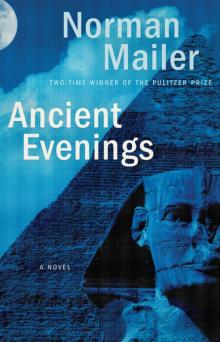 Ancient Evenings
Ancient Evenings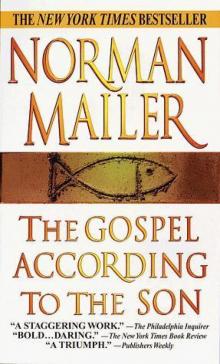 The Gospel According to the Son
The Gospel According to the Son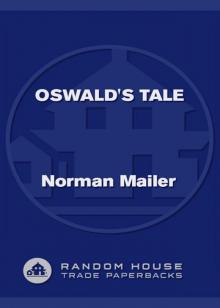 Oswald's Tale: An American Mystery
Oswald's Tale: An American Mystery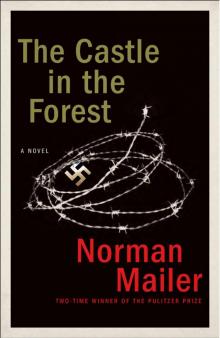 The Castle in the Forest
The Castle in the Forest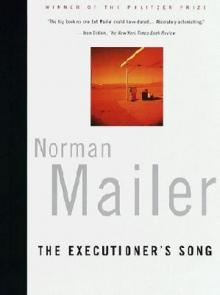 The Executioner's Song
The Executioner's Song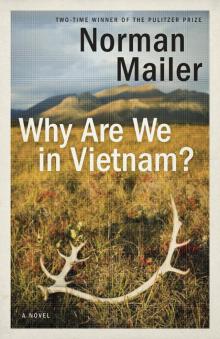 Why Are We in Vietnam?
Why Are We in Vietnam? The Deer Park: A Play
The Deer Park: A Play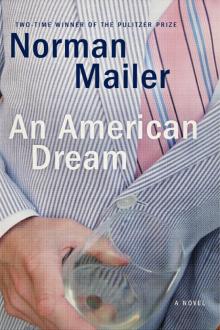 An American Dream
An American Dream Why Are We at War?
Why Are We at War?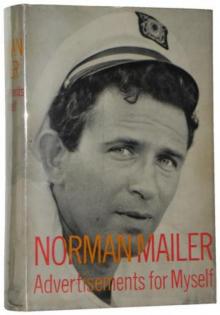 The Time of Her Time
The Time of Her Time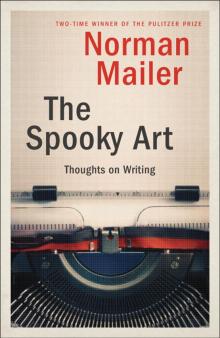 The Spooky Art: Thoughts on Writing
The Spooky Art: Thoughts on Writing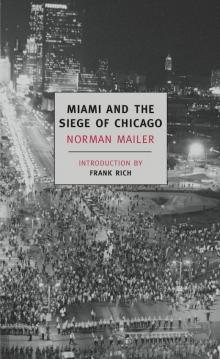 Miami and the Siege of Chicago
Miami and the Siege of Chicago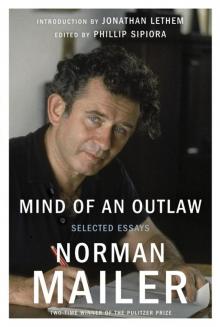 Mind of an Outlaw: Selected Essays
Mind of an Outlaw: Selected Essays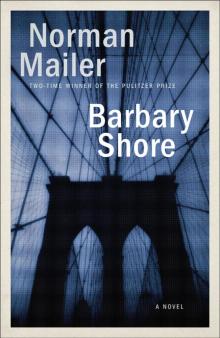 Barbary Shore
Barbary Shore The Fight
The Fight Harlot's Ghost
Harlot's Ghost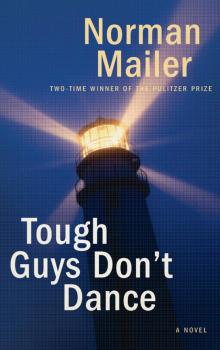 Tough Guys Don't Dance
Tough Guys Don't Dance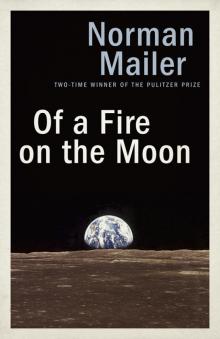 Of a Fire on the Moon
Of a Fire on the Moon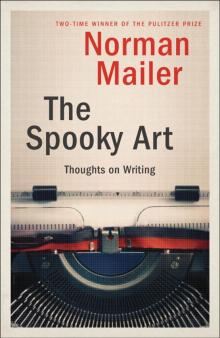 The Spooky Art
The Spooky Art The Deer Park
The Deer Park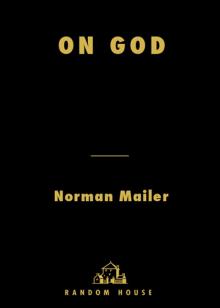 On God: An Uncommon Conversation
On God: An Uncommon Conversation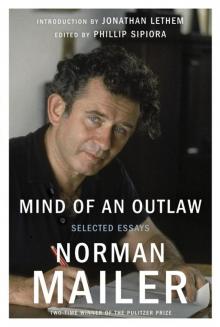 Mind of an Outlaw
Mind of an Outlaw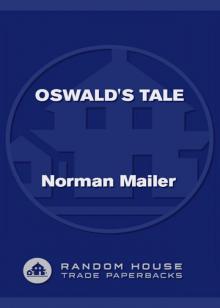 Oswald's Tale
Oswald's Tale